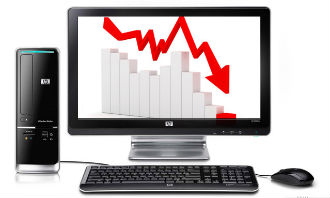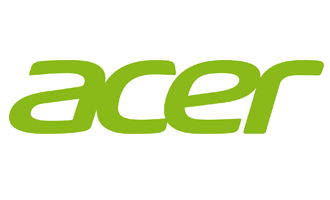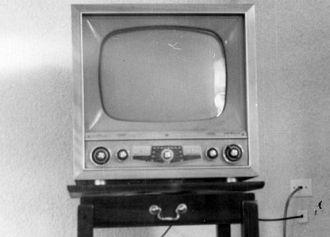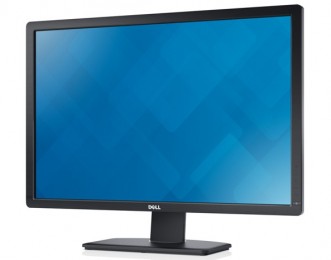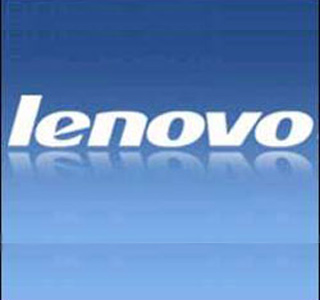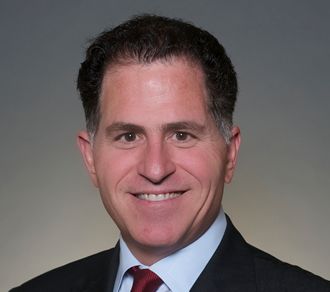 Tin-box shifter Michael Dell has found himself in the middle of a three-way proxy war for control of his company and might go out like Richard III screaming for a horse and ending up under a carpark.
Tin-box shifter Michael Dell has found himself in the middle of a three-way proxy war for control of his company and might go out like Richard III screaming for a horse and ending up under a carpark.
Dell hit the headlines by allying with Silver Lake in a bid to take his company private. Really, that should have been the end of matters. Dell owns a big chunk of company stock, he founded the company in the first place and it desperately needs a restructuring.
Shareholders should logically be pleased to see a return on their cash at all, as the value of the outfit is likely to get a lot worse before it gets better, if it gets better. For some reason they are not.
Instead we are seeing the various big shareholders ganging up to try and take control before Dell can get the company private.
The question is what they hope to gain. In the middle of a recession, where Dell’s traditional buyers are saving their pennies, the company is paralysed. The only part of the IT industry that is moving at all is the mobile sector and Dell is not a big player there. Dell is doing alright in enterprise.
Logically a company in Dell’s position should restructure, cut back to basics and survive on its cash reserves until things pick up.
This is the opposite of what shareholders want. They want the company to show continual growth so that the share price will increase. By going private, Dell is protected from the wrath of shareholders and can look to the longer term.
While all sides are talking about having the best interests of the company and shareholders at heart, it is fairly clear that the only one who really cares about Dell as an ongoing concern is Michael Dell himself.
Blackstone, Carl Icahn, and Silver Lake Partners all have ideas to take the company private. But their idea can only be to take over and flog off all the company assets and distribute the last of the cash.
This can be the only reason why they are swarming around Dell like flies.
Otherwise any observer who lifts the bonnet of Dell has to take a sharp intake of breath and admit that in the short term Dell is buggered. Its core business market is rotting and its quarterly sales in its consumer sector are sliding.
A management plan presented to the board last July expected $5.6 billion in operating income this year. That was later reduced to $3.7 billion, but is likely to be revised lower still.
Global shipments for PC makers declined 3.2 percent last year and are predicted to fall more than 10 percent in the current quarter. Dell has not really seen any benefits from the launch of Windows 8 or the Ultrabook.
This puts Dell’s board in a difficult position. So far they have supported Michael Dell but now they have to work out if offers from Blackstone and Icahn will lead to a better bid than the one from Michael Dell and Silver Lake.
They will have to look at the deal in terms of cash. They can’t take the perspective that it’s better for the company to go with Michael, they always have to say “the average shareholder will do better”.
The three rival offers are critically different. Dell and Silver Lake will buy out shareholders for $13.65 a share, valuing Dell at $24.4 billion. If the preliminary offers from Blackstone and Icahn do not firm up, this is the best shareholders can expect. Currently you can pick up a second hand Dell share for $14.50 so a lot of people will be out of pocket.
To make matters worse, few people will invest in Dell shares while there is a big argument about the outfit’s future. Corporate buyers thinking about getting in a few Dell boxes want to know if the company is going to be around in a few years.
Blackstone’s offer of more than $14.25 a share to all investors who want to cash out would mean that Dell is worth $25 billion.
Icahn, on the other hand, is offering to buy 58 percent of shares for $15 apiece.
At the moment, analysts say that Blackstone has the highest chance of success. That could cause Dell some major headaches. For a start it is likely that Michael Dell himself will be removed from the company.
There are rumours that Icahn submitted his proposal only to keep discussions going, because he thought Blackstone may not submit an offer. It is likely that he will walk away from the deal but wants to make the most of his billion dollar investment in the company. He will want a large special dividend before he ties up with a rival bid, probably Blackstone.
Michael Dell’s own involvement with Blackstone would seal it, but it does not seem to be playing out that way. Earlier this week the Blackstone deepthroats were telling the press that he would be fired if they had anything do do with it. Officially, though, Dell has said that he will “explore in good faith” the possibility of working with Blackstone or Icahn.
He claimed he would be like Switzerland in favouring a form of armed neutrality.
But Blackstone wants to asset strip Dell’s financial services unit, worth an estimated $5 billion, and has apparently asked ex HP chief Mark Hurd about running the company. Dell, who is always a little hands on, has good reasons why he would not want this to be the case.
Either way all this is going to get a lot messier and is going to take months to sort out. What the three factions have to realise is that Dell, the company, could be killed off by their final Battle of Bosworth.
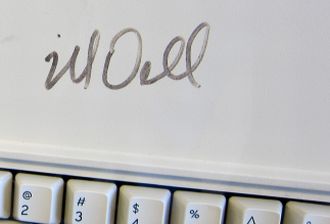 Dell has announced a partner discount for its enterprise range to coincide with the launch of Online Solutions Configurator, a web sales tool, announced today.
Dell has announced a partner discount for its enterprise range to coincide with the launch of Online Solutions Configurator, a web sales tool, announced today.

